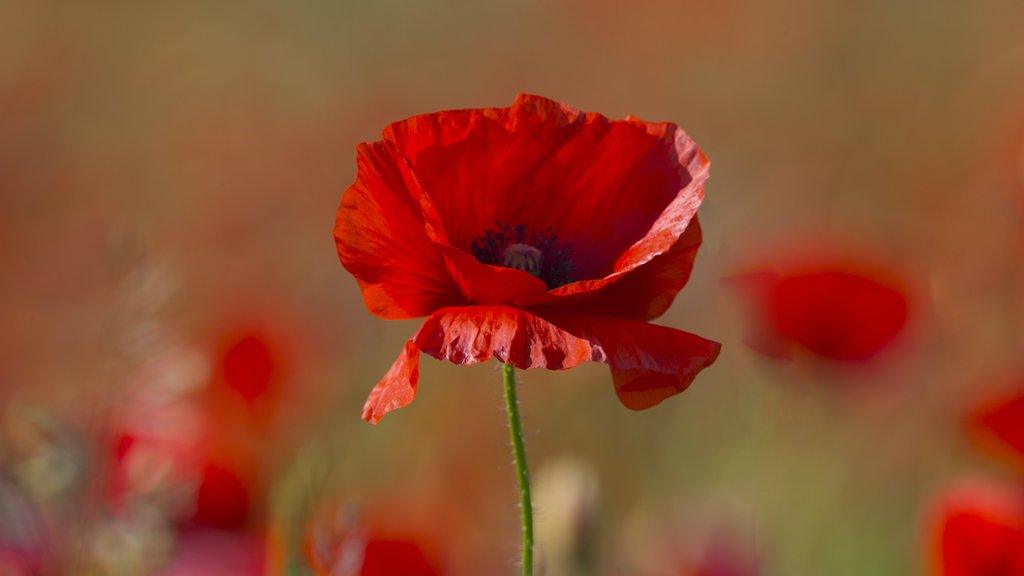Remembrance Day poppy to go plastic free
- Published
- comments
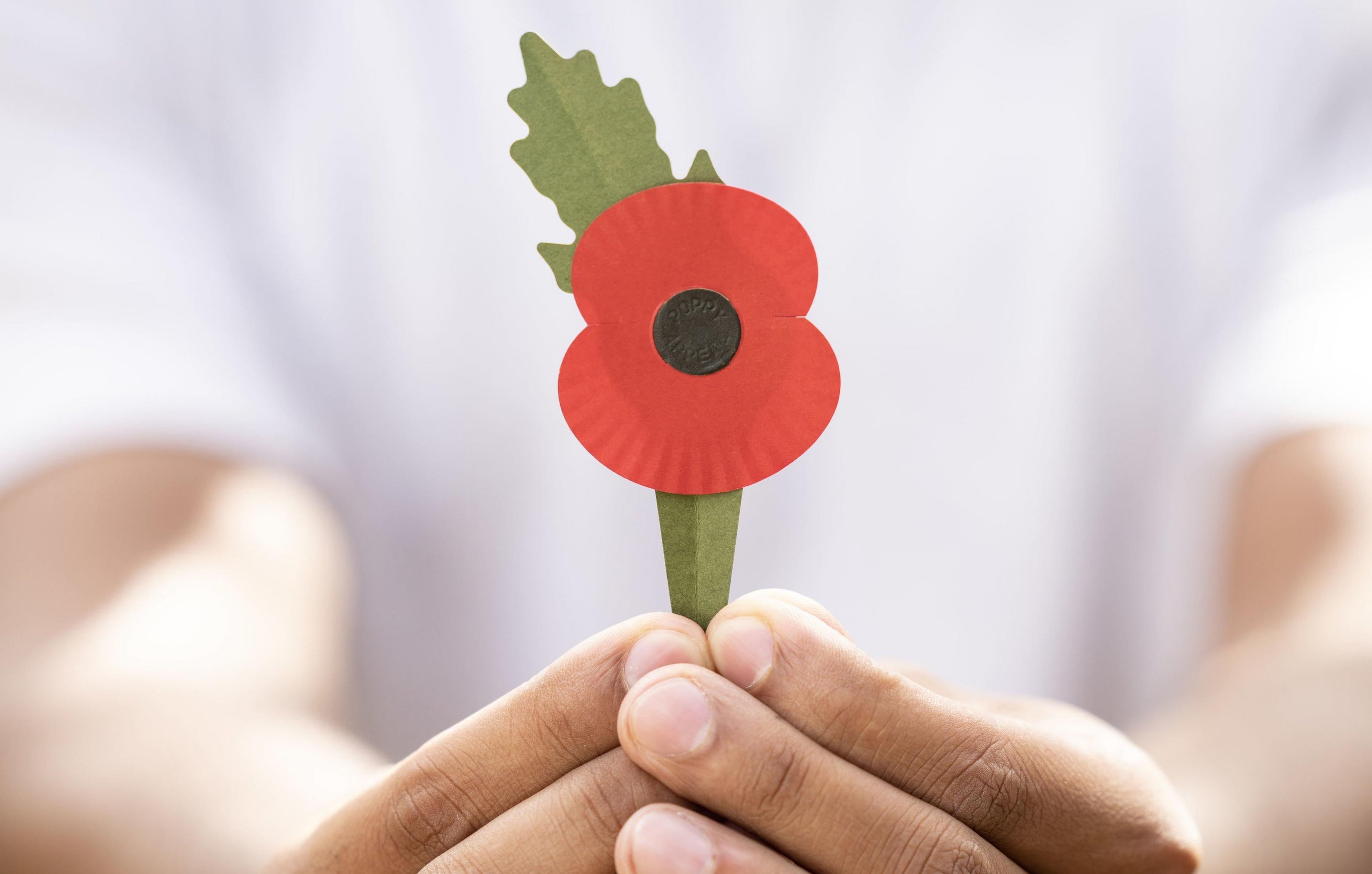
50% of the material used in the new poppies will come from old coffee cups
A red paper poppy pinned to a jacket or top is a sign of remembrance you are probably used to seeing every November.
But this year the poppy is set to become more environmentally friendly.
Since they were first introduced 102 years ago, both the leaf and flower have been made from paper but the stem and black centre have been made from plastic.
But the design is going to change as the poppies will ditch the plastic and be made from recyclable paper.
The redesign took three years and Andy Taylor-Whyte, who is in charge of the appeal at the Royal British Legion said it was "more planet-friendly".
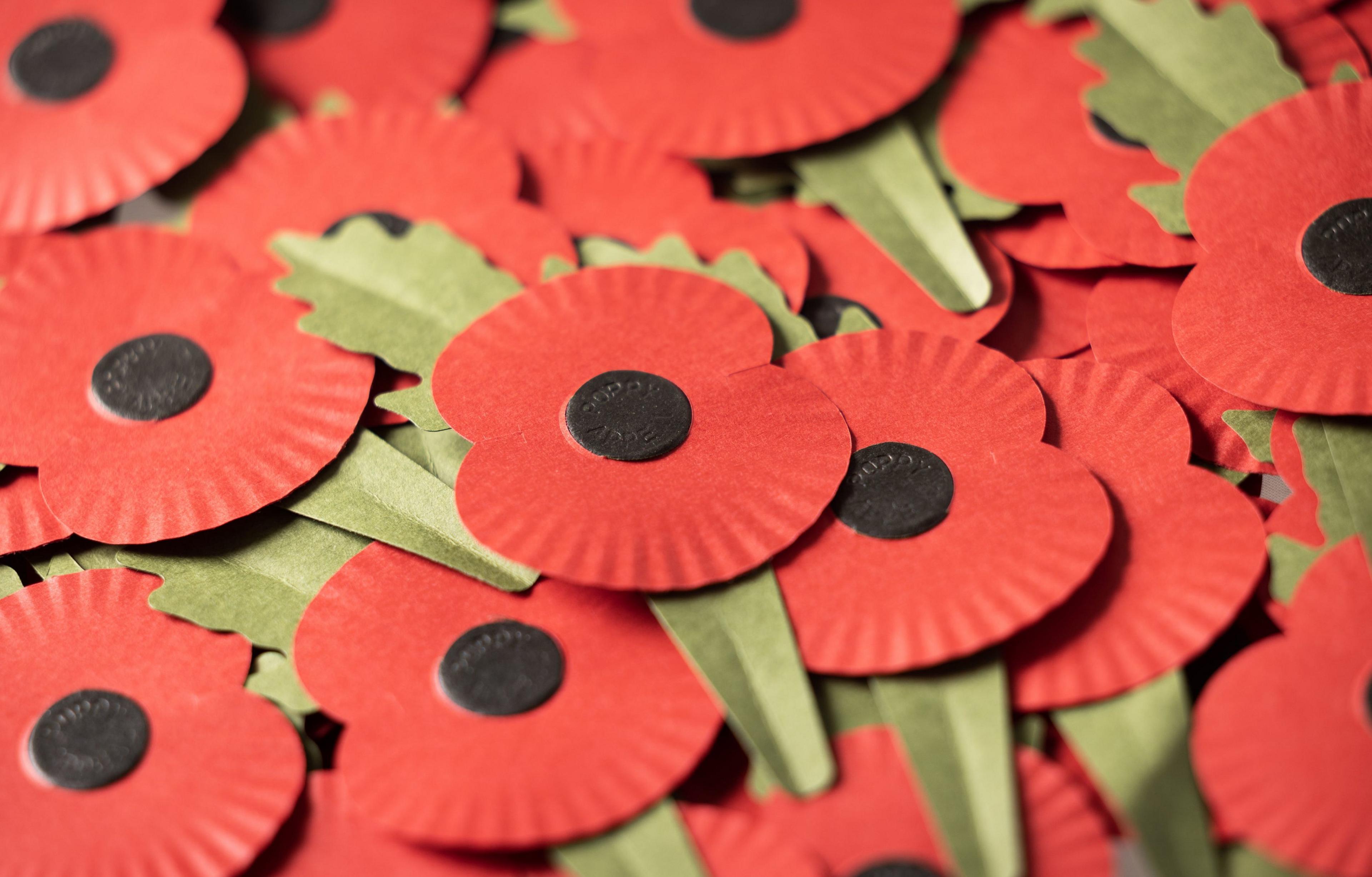
The Royal British Legion hope the redesign will encourage more people to take part in the Poppy Appeal
Around 50% of the material for the new poppies will come from discarded coffee cups, with the rest being made up of renewable fibres.
Experts at the University College of London, who helped to design the new poppy said it has a 40% smaller carbon footprint.
It will be sold alongside remaining stocks of the current poppy from 26 October until Remembrance Sunday on 12 November.
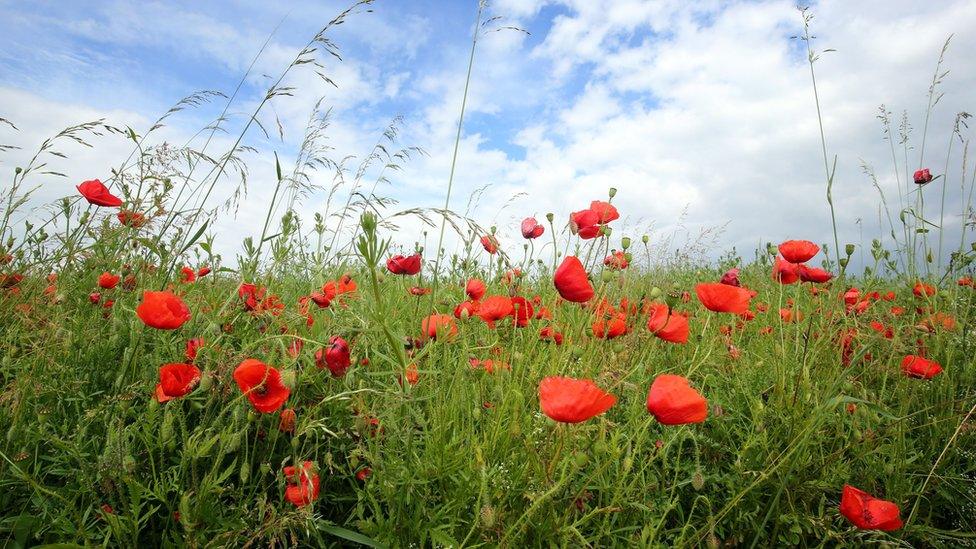
Poppies growing in a field in France, which used to be a battlefield
Why do we wear poppies?
The reason poppies are used to remember those who have given their lives in battle is because they are the flowers which grew on the battlefields after World War One ended.
Since then, they have come to be a symbol of remembering not just those who gave their lives in World War One, but all those who have died on behalf of their country.
The money raised from donations is used to help servicemen and women who are still alive, whose lives have been changed by wars that they fought in.
The money helps veterans who may need to find new jobs or somewhere to live, or any other support they may need.
It is also used to help those who have lost loved ones because of wars.
- Published19 October 2022
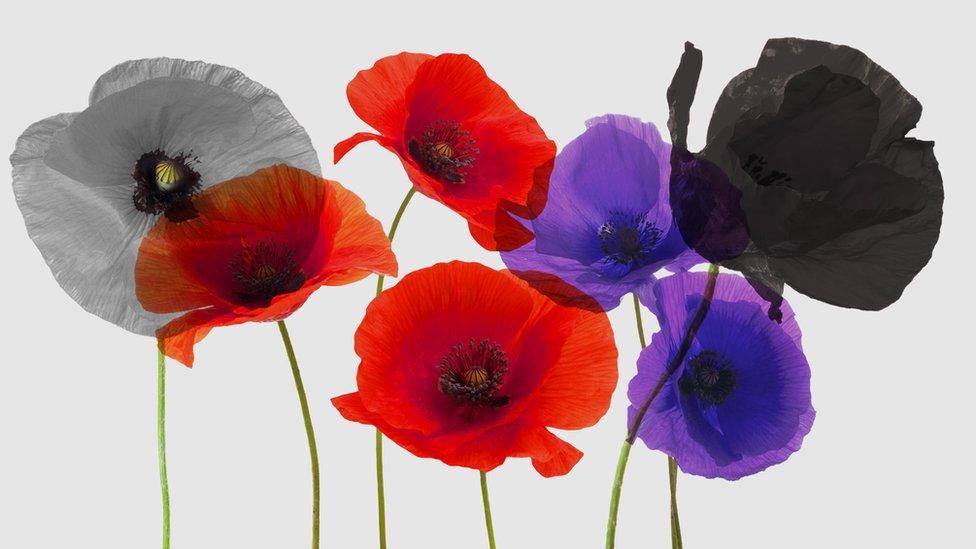
- Published31 October 2014
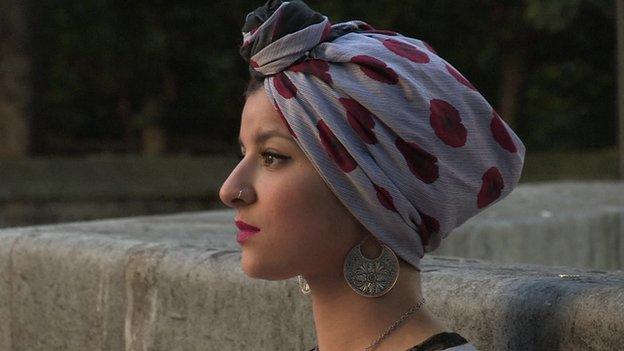
- Published27 October 2023
